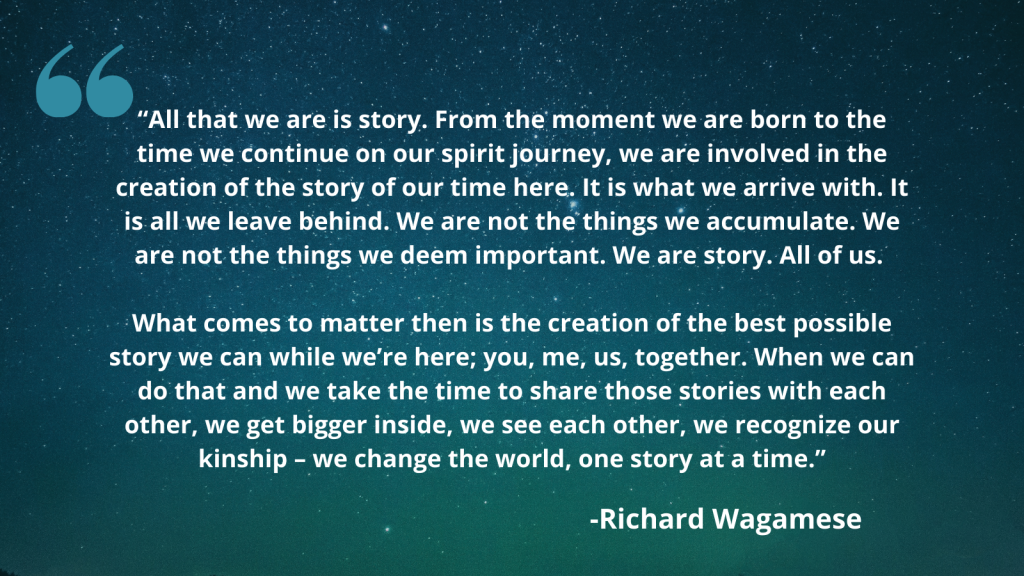Introduction

This quote is one that has stuck with me since the first time I read it. A belief I’ve had for many years put so beautifully into words. When we learn about each other, sans judgment, we recognize each other through a lens of compassion and care. With compassion and care comes kinship. I deeply appreciate learning about people and hearing stories about their lives and backgrounds. One’s lived experience influences how we think and navigate the world. Learning about other lived experiences outside your own provides insight and is essential to making the world a better, safer, and more equitable place.
Think about how you currently interact with peoples’ stories – both professionally and personally. Notice if you tend to make assumptions while listening. Education is storytelling. And the way we teach and tell stories is seldomly neutral. Narratives structure human comprehension, and shape our ability to imagine and achieve transformed futures within education.
When it comes to creating OER, you’re creating a story. What is the story of your OER? What are the stories of your field?
Pause & Reflect: The Stories We Tell
Take a moment to think more broadly about the stories, rules, representation, ways of knowing in your day to day interactions within your role. Simply clicking on each part in the accordion allows you to read the individual sections.
Resources:
Wagamese, R. (2019, August 30). As it happened: The archive edition – Richard Wagamese on his 2014 novel medicine walk | CBC Radio. CBCnews. Retrieved March 14, 2023, from https://www.cbc.ca/radio/asithappens/as-it-happens-friday-edition-1.5260084/as-it-happened-the-archive-edition-richard-wagamese-on-his-2014-novel-medicine-walk-1.5230835
Media Attributions
- We Are Story. © Kaitlin Schilling is licensed under a CC BY (Attribution) license

